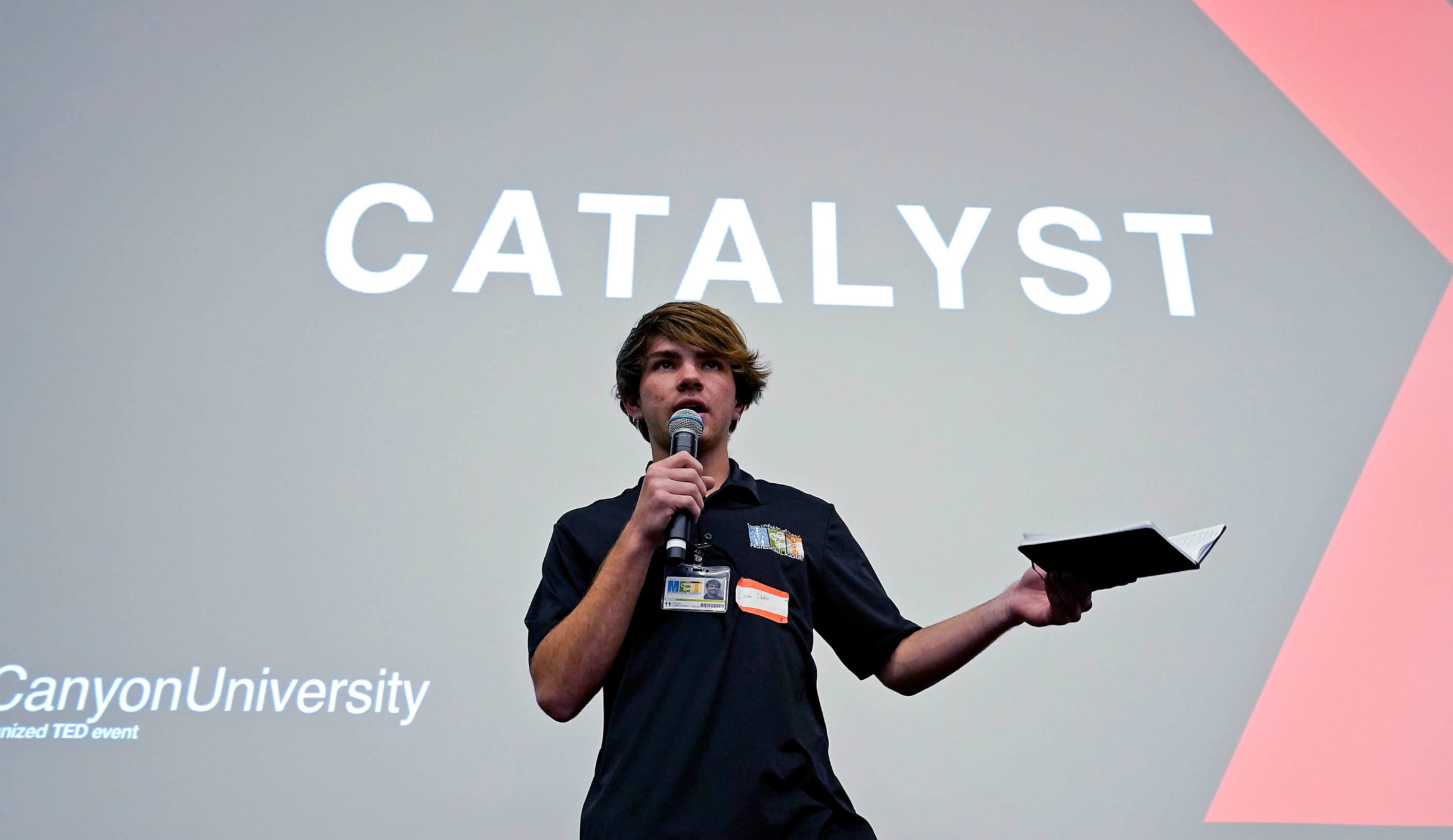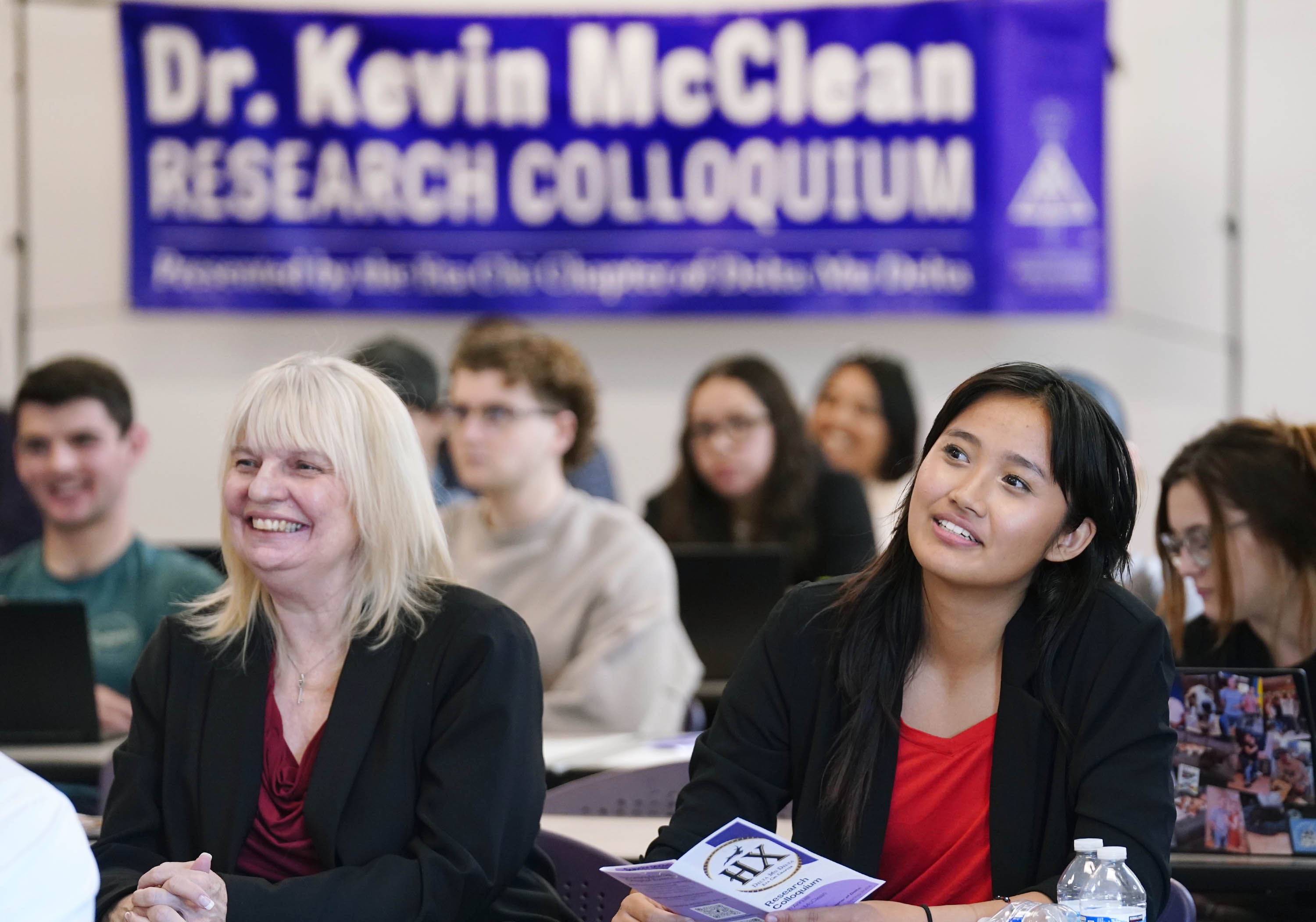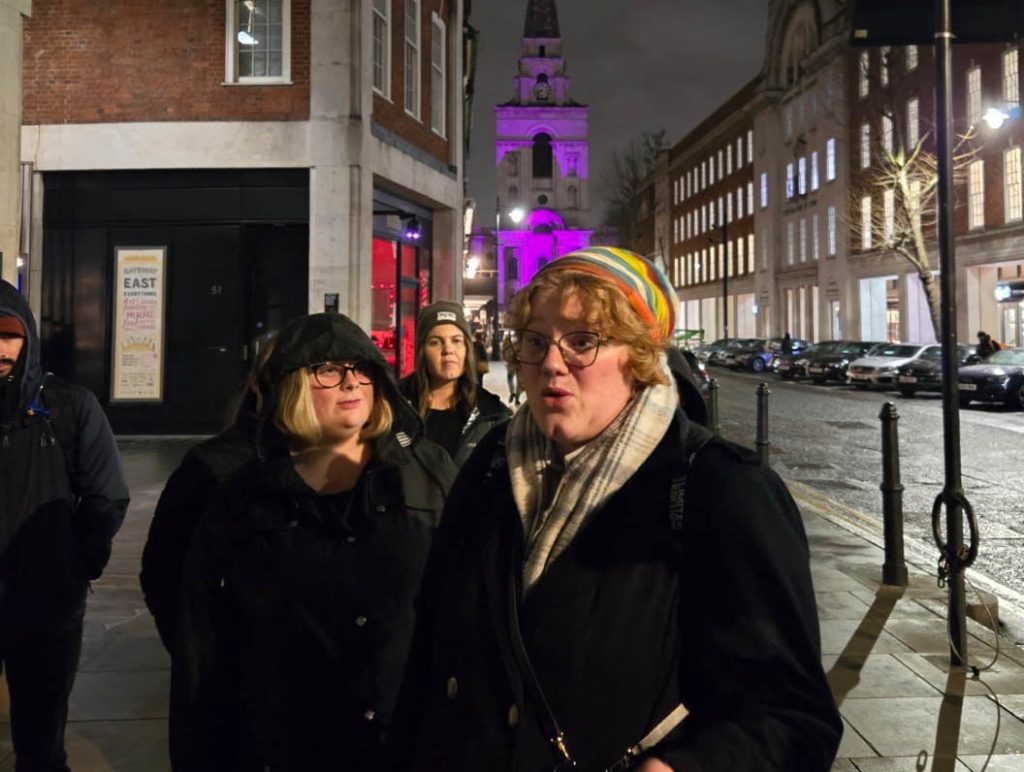
Catherine Hallam stood on the streets of London in a top hat on the very spot where the body of a victim of Jack the Ripper was found in 1888.
This was no true-crime podcast but the lecture of a behavioral health instructor at Grand Canyon University.
The 18 GCU students on the trip were enthralled, as Hallam talked about moral development. “How does one go so contrary to what is and isn’t OK?”
Another instructor chimed in – Kim Kennedy from the history department – who talked about the overcrowded, violent and impoverished Victorian London Whitechapel neighborhood of the time, “how it fueled mental health crises, and how these social problems were understood and responded to at the time.”
Bleeding out was then thought to be a cure, and mental illness was attributed to demonic possession, which led to even deeper discussions of mental health treatment.
“It was better than any classroom discussion because they were so hyped about it,” Hallam said.
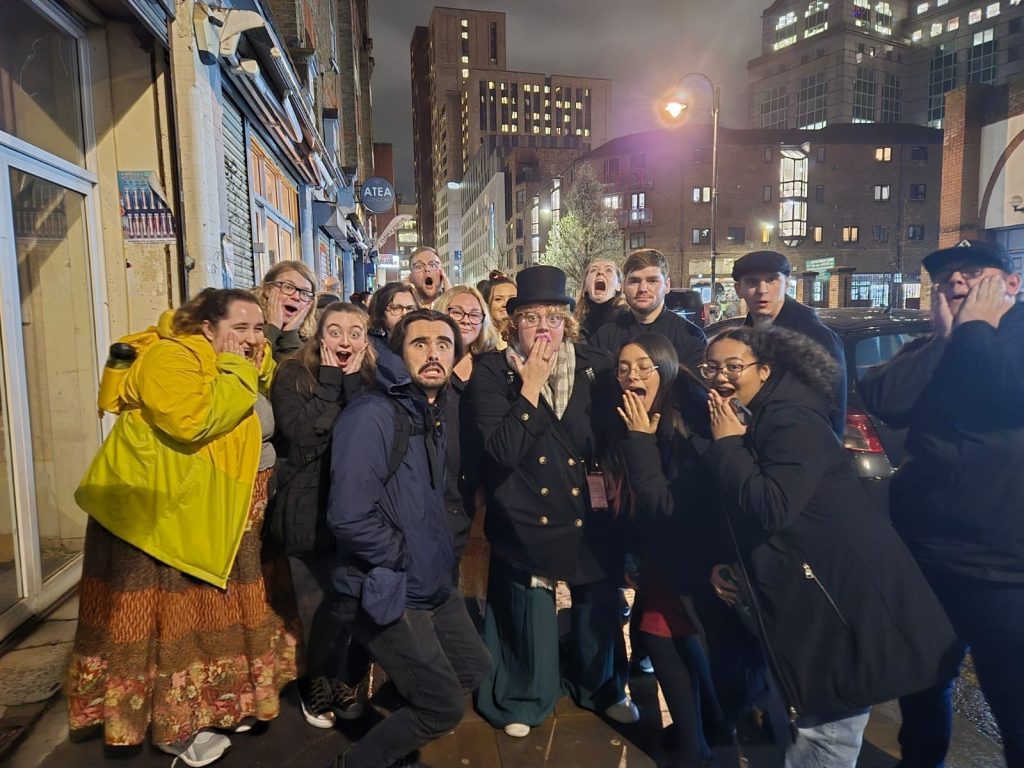
This was no breezy tour for students who signed up to study abroad last spring break, but a unique new program that combined behavioral health students with history students and their instructors in a tour of London historical and cultural sites that sparked discussions in both academic disciplines.
Future trips are being planned for this year to Germany to study World War II and post-traumatic stress syndrome – the first information session was held Monday morning to discuss details of the trip. The following year, they will take students to Japan to analyze the country's cultural history and its effects on mental health.
The idea was hatched when Hallam and Kennedy shared an office space.
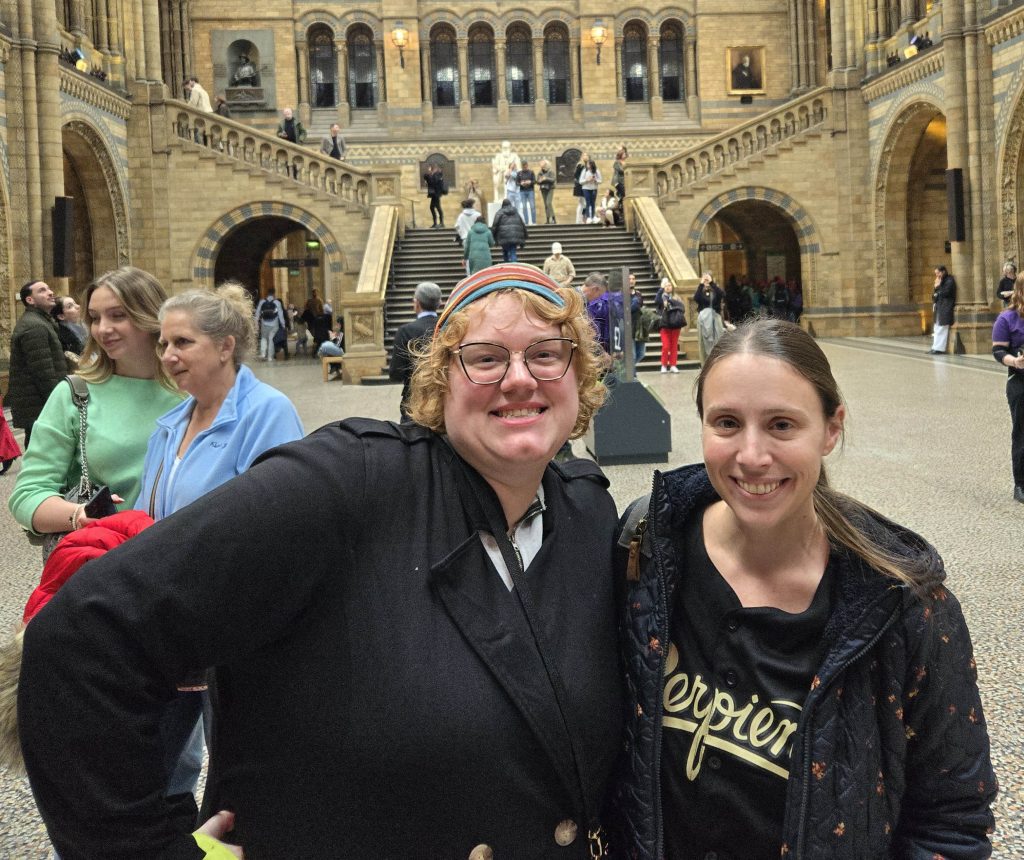
“There are tons of studies that show that students who study abroad do better in life, have higher-paying jobs and have a more enriching educational experience,” Hallam said.
“Instead of sitting there, fighting attention spans, it’s ‘hey let’s walk and let me show you what the history of this is.’”
History brought an interesting perspective for her behavioral health students, who could understand why movements, such as deinstitutionalization, occurred because of the politics and societal attitudes of the times.
The students from departments in the College of Humanities and Social Sciences all learned from one other on the trip, which included tours of numerous museums.
“It was eye-opening,” said junior history major Joelle Dildy. “You can understand human behavior and psychology to explain why historical figures did what they did and recognize their behavior and actions. It brought a new perspective on history.”
She never thought she’d be so interested in Sigmund Freud, but there she was on a tour, standing below the portrait of the founder of psychoanalysis, and understanding the revolts happening at the time as partially the result of internalized oppression.
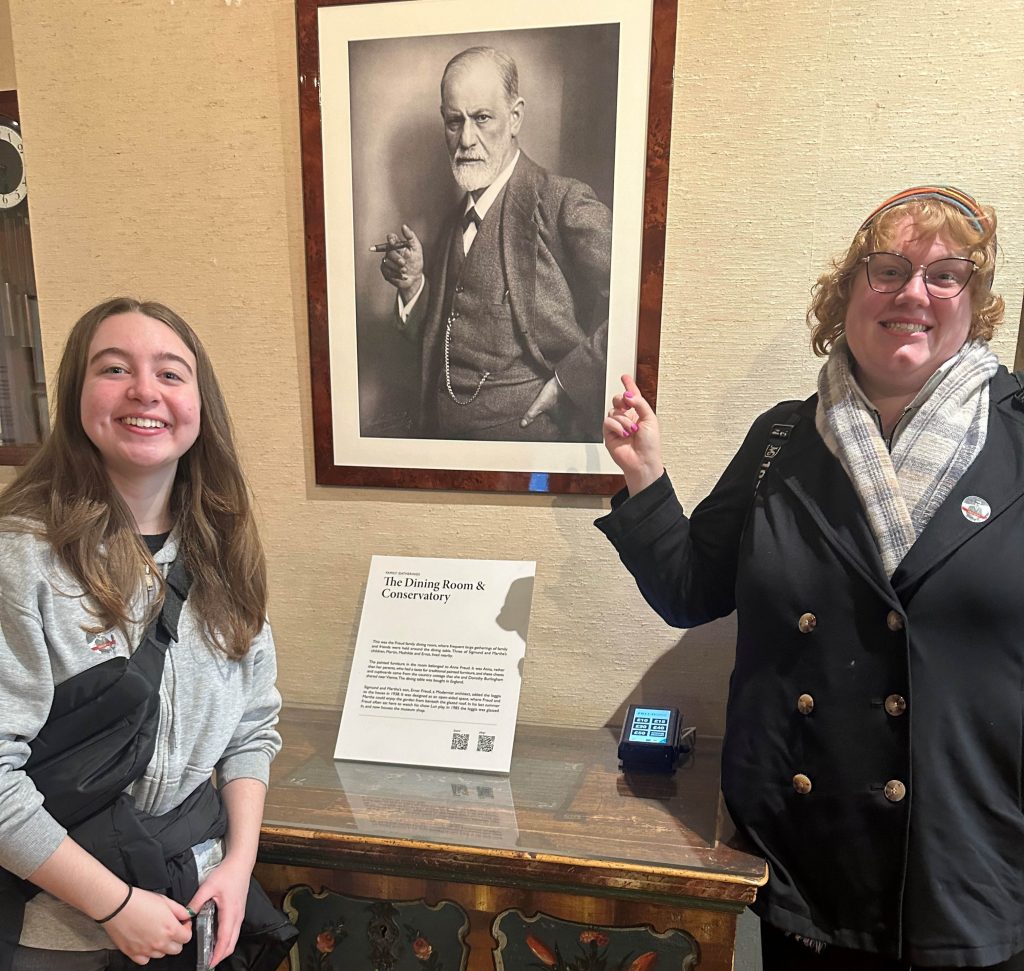
Kennedy got real excited during the Freud discussion, how he made an impact on the modern worldview by probing the surface of the human psyche. That new awareness led us to realize “we’re actually often quite irrational and imbalanced without treatment, introducing a seed of doubt in human rationality and inevitable progress. But there was also new hope that people could be healed, and that better understanding of mental health could bring new insights into solving conflicts and social problems.”
During the Freud tour, a theatre professor from another university was leading students on Freud’s impact on modern theatre, and the GCU group took in even more perspectives.
“It was interdisciplinary heaven,” Kennedy said.
At the Imperial War Museum, senior Hannah Cilliers, a double major in behavioral health science and psychology, was fascinated by the civilian effects of the London Blitz during World War II.
“With a behavioral health lens, we were able to feel what it would be like to go through that to better understand the trauma that was developed,” she said. “It was fun to see the topics we were learning about from both a historical point of view and a psychological point of view. History and psychology are interwoven, and it is cool to see that intersection.”
Another interesting thing happened on the trip. History students became the teachers of behavioral health students, and vice versa.
“It seemed like every student that came on the trip had their own areas of expertise to share with the group. Everybody in the group had their own personal tour guide wherever we went,” Kennedy said.
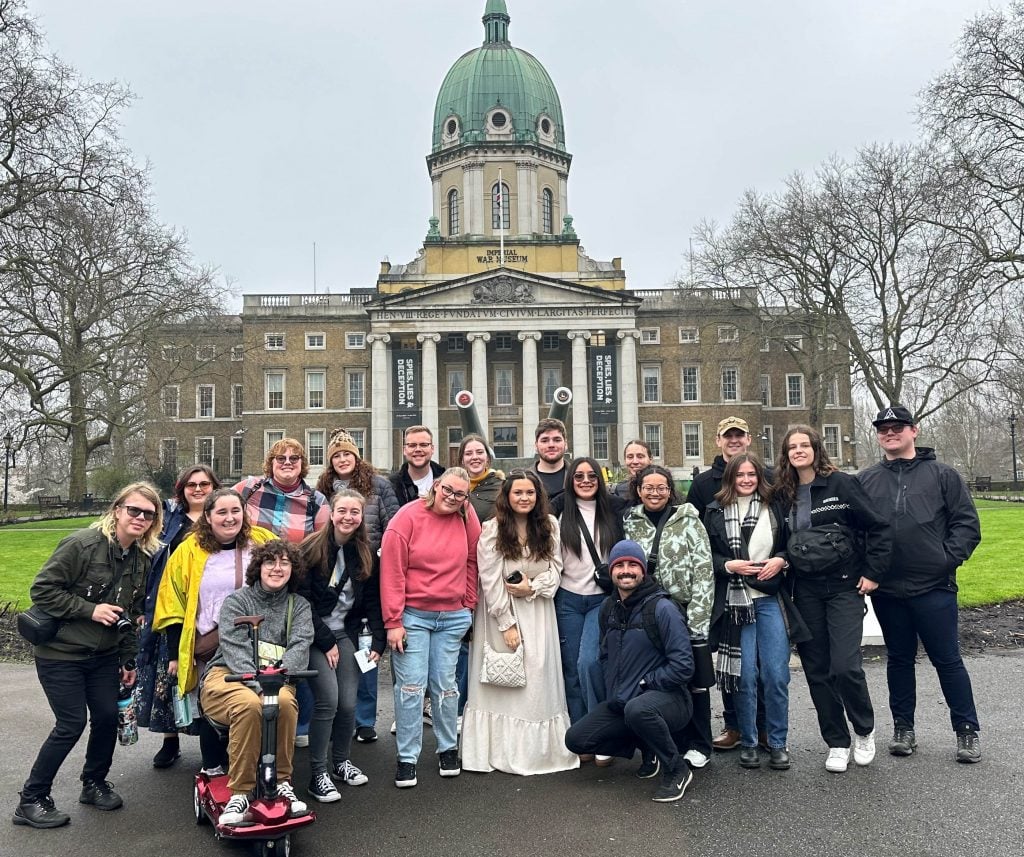
History students analyzed the causes of wars, and behavioral health students talked about post-traumatic stress syndrome that resulted.
“History students were relating stories from the periods they love to study or guiding their peers through museum exhibits, adding color commentary, and the behavioral health students were bringing up these amazing insights into human behavior,” Kennedy said. “It gave us all a more empathetic and nuanced view of familiar stories, making the past more relatable and human.”
While Hallam explained autism to a history buff, Kennedy had behavioral health students attached to her at the Tower of London or the British Museum “chatting about mad kings, London's architecture or ancient civilizations trying to appease their gods.”
Hallam hopes it sets an example across the university of the value of interdisciplinary cooperation between fields of study.
“Students start seeing education from a global view, other than ‘I am a history major, so history is the only thing I need to learn.’ You can learn so much more,” she said.
Even the case of a serial killer from nearly 140 years ago who was never caught can teach us a thing or two.
It made student Dildy think about how Jack the Ripper's murders might have related to wanting to silence women, his relationship with his mother, and why they were poor, from an area noted for prostitution that long went unnoticed.
A gruesome bit of history suddenly had more context.
Grand Canyon University senior writer Mike Kilen can be reached at [email protected]
***
Related content:
GCU News: Students delve into culture, cuisine and world history with study abroad
GCU News: Behavioral health students land jobs before graduation to fill growing need





































